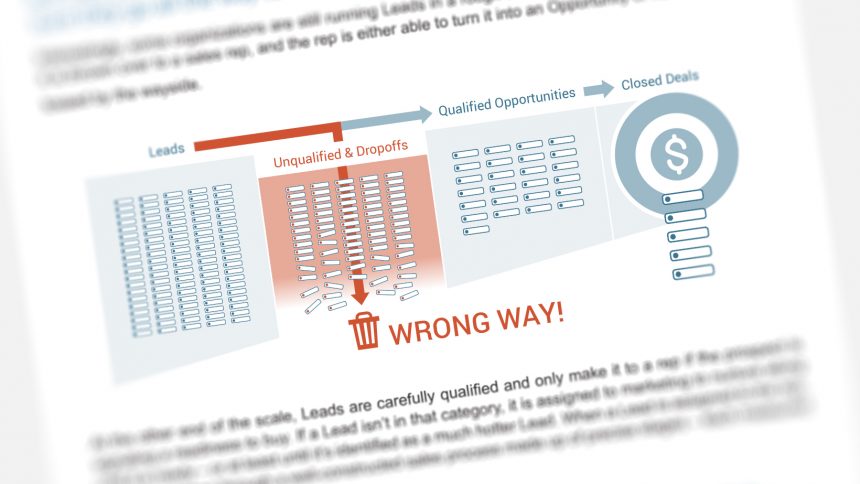Our self-gradable test will show you where you can improve the management of Leads and Opportunities to Increase Sales Velocity and Close Rates
From a Lead to a Closed Sale
As a Lead moves along the sales pipeline, at some point it becomes an Opportunity. This means it has the real potential of becoming what everyone in the sales force is after: a closed sale.
Whereas qualifying a Lead might be relatively simple, Opportunity management is a bit more complex. This is because the stakes are higher. A salesperson is now going to invest valuable time into working the Opportunity, engaging key people at the target company, making presentations, and using any sales technique to move the Opportunity along. Other departments will likely become involved also.
Tech support might be standing by if the prospect company is testing a trial version. Marketing might be armed to provide specific materials to help the sale along. Executives in the company could be standing by as tags on the sale. Everyone is betting that this Opportunity will pay off, but there is always that risk factor. Not all sales close. Will this one turn to profit, or become expensively wasted effort?
Learn How to Handle Leads and Opportunities
As Leads become Opportunities and move through your sales process, are they getting the right kind of attention, or are you still operating without a process? Are Leads just thrown over to a sales rep, and left to the vagaries of chance?
There’s a right and a wrong way to handle Leads and Opportunities, and our self-assessment test is a fun way to find out if you can improve your tactics.
You’ll learn more about:
- Defining and tracking Leads
- Defining your Lead Management Process
- The importance of recycling Leads
- Revealing problems or bottlenecks in your sales processes
- Sharing best practices within your sales team
- Download this self-assessment test and improve sales velocity and closing rates!








